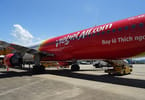H.E. Rupiah Bwezani Banda, the president of the Republic of Zambia will be declaring a “Week of Peace Through Tourism” on Monday at the IIPT conference ongoing in Lusaka, Zambia. The conference is hosted by the Ministry of Tourism, Environment and Natural Resources, Zambia, and organized by the International Institute for Peace Through Tourism. A variety of forums will address the various concerns of educators and media towards climate change and its effects on tourism.
ETurboNews (eTN) publisher Juergen Thomas Steinmetz is attending the conference and will be speaking at the conference on Monday.
On Sunday, the chief speaker of the forum entitled, “Traditional Leaders Forum,” was His Royal Highness Senior Chief Mukuni of the Tokamak Leya people, Mukuni Royal Establishment. The forum was moderated by Joseph Zulu, President of the Zambia Ethnographic Tourism and Cultural Tourism Alliance.
This is a first-time forum of traditional leaders in Africa and is organized with the collaboration of the Zambia Ethnographic Tourism and Cultural Tourism Alliance. It seeks to foster increased indigenous tourism in Zambia and Africa and build bridges of indigenous tourism, friendship, and collaboration between Africa and other regions in the world. The forum was attended by representatives from universities, as well as local and international media.
Speaker Suzanne Becken is an Associate Professor of Environment Society and Design at Lincoln University and director for the Centre for Land Environment and People, New Zealand, and she presented the following:
Extreme events in nature have been happening, so natural disasters, climate change, tourism, and disaster and disaster management have become critical topics. The trend is on the rise, although there could be a variety of reasons for this such as that there is more reporting now and also people are living more in dangerous areas than they used to.
In developing countries, there are numerous fatalities, whereas in developed countries, the damage is more economic. 2010 had 960 natural calamities worldwide. IPPC states that heat waves will be more frequent and longer lasting and more dryness in the mid continents in the US and Australia. There is increased rainfall and flooding, and wind intensity is increasing, and there will be more frequency of it in the Caribbean also.
How tourism is affected: For example, tourism to New Zealand decreased by 30 percent after the incident in Christchurch, something that can be devastating to an economy that relies on tourism.
“Reduction, Readiness, Response, and Recovery” are the plans developed nations have in place for such disasters.
There are early warning systems in place. The recovery phase can take years. The tourism sector is often not included in these plans, and they are not necessarily included in the plans of action either, leaving tourists stranded. Can the local government work with tourism for the creation of plans of action after a crisis?
There needs to be a disaster response plan and a business continuity plan. What do you do with the tourists? Where do you take them? It’s important to consult with the media and keep the information flowing. It’s important to counteract any negative reports that are unwarranted as tourists are so easily scared away. Tourism needs a warning contact point and ongoing communication with tourists, wholesalers, and airlines.
Climate change will exacerbate the current vulnerabilities. There is so little funding in the industry that it is important to keep the issue forward in the various sectors and then communication between them. It was pointed out that preventative measures would be better than reactionary ones – we have a tendency to wait until the disaster happened as opposed to having measures in place for readiness. Now that such incredible natural disasters are occurring with such frequency, there will be an increase in countries addressing this in order to be prepared.
There are certain protocols that have been signed such as the Kyoto Protocol so that the industrialized countries can address this. There is so much disagreement on it, but it is a certain adaptation among the countries. There is an agreement that we cannot fight climate change but we can reduce and adapt.
The tourism sector needs to lobby as they don’t have any disaster response infrastructure in place. Tourism is a creator of the lifestyle that is helping to make the problem of climate change. There are some initiatives around, such as “slow tourism,” green tourism, etc. Tourism can help teach people again about meaningful experiences.
Writers in the media have a huge role to play in this. It’s always challenging to get everyone on board, and tourism is a widely fragmented area, usually with a small budget. There needs to be someone taking a leadership role in terms of disaster management – that is the challenge of tourism. Greenhouse gases as a result of aviation is a huge issue that will come up frequently in this conference.
The agricultural sector can combine with tourism in going local with their initiatives towards “eat local” campaigns and creating a smaller carbon footprint. It enhances the tourist experience to enjoy local cuisine.
Elliot Mumbai is a lecturer at the Livingstone International University and also made a presentation. Many CFCs have been banned, and now there is information that some of the substitutes have damaging results also. We use too much non-renewable, carbon-based energy. Business is expected to do business differently and responsibly. 186 countries have pledged to stabilize the greenhouse gas problem. We need to move to more renewable energy sources and to be cautious about currently-used energy like fuel.
Lucy Kapitani from the Liubetm University in Zambia reported:
This brings together educators to share their ideas and to reach consensus on educational initiatives. The unleashing of greenhouse gases results in global warming and climate change, resulting in the Earth experiencing extreme weather and the habitats of animals being disrupted. Traditional livelihoods are being destroyed and such as many of the massive resorts like golf resorts that use tremendous resources. Yet they often find a way to be considered an ecotourism choice.
More corporate efforts should be made by the academic community. The Zambian government does recognize climate change in its planning strategy. Standards are being set with a business model designed to sustain tourism over the long term. The universities in Zamabia, Malaysia, and England are involved together in developing sustainable tourism courses. This will bring about structural transformation. Tourism is a primary business so a primary issue becomes adapting concerns about the environment into the curriculum. It is a social and political issue, affecting all sectors of the economy.
There are collaborative efforts underway, including a 92-member collaboration within the UN World Tourism Organization (UNWTO). The universities are trying to spread the news, and the media needs to get involved also. Collaborating with hospitality and tourism areas in universities is an area that is growing. There needs to be new programs developed that involve tourism and climate change specifically. Awareness campaigns are necessary because people do want to embrace care of the environment. Knowledge should be coordinated so as many people as possible can benefit from the information. Livingstone Internatiaonal University is one in Zambia that continues to develop it’s courses that give this information.
Who are the drivers of the risk? The corporate world, as we aspire to produce more and better goods and services. We need to find new ways to deliver this to the customer. Right, there is a conflict with the environment, so the corporate world needs to work in different ways. We as individuals need to do our best. This is a risk that cannot be eliminated. As one tries to maximize their wealth, harm to the environment is often overlooked. The key drivers need to be knowledgeable in order to minimize the damage. It all needs to be distilled into a language that everyone can understand. Agriculture is still driven by the use of chemicals, so it’s time to do a balancing act between necessary production and protection if the world’s resources. There are best measures that can be taken, but the risk can be reduced.
How to integrate theory and practice? Activating the knowledge that everyone has is a great way. There should be changes in policy due to the outcomes of conferences such as this one. Outcomes and resolutions from this conference can be sent to the government, and they can be incorporated as policies are developed. The effects of climate change needs to receive more prominence in the news and also in training programs, especially those involved with production. The impact of climate change is huge, and yet not acknowledged in general. Risk can be mitigated if more sectors were aware of this and, therefore, create ways to minimize the risks.
Hugh Bartis from Nelson Mandela University in South Africa addressed tourism-focused practices – examining the factors of the non-hotel sector, i.e., small inns and B&Bs. About awareness and implementation of efforts towards sustainability, this presentation is mainly using Port Elizabeth South Africa as a case study.
South Africa is seen as being at the forefront of responsible tourism practices. (Frey 2008) RT strives to minimize the negative impact on environment, society, and the economy, facilitating respect and benefits to the host, tourists, and destination. They identified 120 establishments for this questionnaire with a response rate of 24%. They find there is a low level of understanding of responsible tourism. Only 7 percent were aware of an official handbook. They did have a general understanding of waste management and water conservation. There is a huge challenge in tourism that we deal with so many smaller pieces of the industry, such as B&Bs, etc. Reaching everyone with a set of standards becomes difficult with such fragmentation.
This is everyone’s responsibility, not just that of journalists. Many treaties have been signed, but the process has been slow in implementation. What mechanisms are in place to ensure that policies that have been signed are actually being implemented? Experiences and education are so varied on the large scale. The concept should be taught to youth in schools, so the consciousness of it is in place. Introduction of curriculum at an early level would be advantageous.
Munzali Dantata of Nigeria is the director general of the National Institute for Hospitality and Tourism. His presentation was about an educational perspective in Nigeria, which is the largest country in Africa and the leading oil-producing country in Africa.
Tourism has not made a huge impact in this country. Only lately has the government tried to diversify the economy away from the petroleum industry. Tourism is a relatively new concept in Nigeria, as is climate change. Mass education in tourism will now be underway, and there is an ambitious tourism master plan in effect.
The Ministry of Culture and Tourism is the name of the board as culture is a main aspect that the country likes to promote. This in itself falls under the umbrella of eco-tourism. 100% of the oil comes from one coastal area in Nigeria, within an area that also has many fishing villages. There is a federal environmental agency that was created to address the agitation between the oil industry and the fishing communities. It tries to promote the use of alternative energies such as solar. The concept and process of sustainability is all still relatively fledgling in Nigeria at this point.
Helen Purkitt is from the department of Political Science at the US Naval Academy in Annapolis, Maryland, and she spoke about new methods for gathering, analyzing, and communicating information about tourism and climate change. Her vision is to help start a wiki program that could be used throughout Africa using electronic ways of sharing and storing. There is an inedible opportunity with the use of the Internet to disseminate information to many. The Net generation is changing the world and should be embraced. We are in an information revolution with the Internet. We should harness wiki technology as opposed to banning it. The wiki template she and her team created was specifically for the areas of transnational crime and terror, but the template can be broadly applied. She advocates that just about anybody can create a website in Google sites, so this is a wonderful way of getting a lot of information in one central area. www.botswanatourismresearch.org is a website to look at to see the template.
In conclusion, the whole world is becoming aware of the enormous impact that climate change is having on every aspect of life and commerce. In tourism, we must be responsible to examine best practices and disseminate this information “out there,” utilizing the best means of communication and education.
www.iipt.org
WHAT TO TAKE AWAY FROM THIS ARTICLE:
- The trend is on the rise, although there could be a variety of reasons for this such as that there is more reporting now and also people are living more in dangerous areas than they used to.
- There is so little funding in the industry that it is important to keep the issue forward in the various sectors and then communication between them.
- This is a first-time forum of traditional leaders in Africa and is organized with the collaboration of the Zambia Ethnographic Tourism and Cultural Tourism Alliance.






















